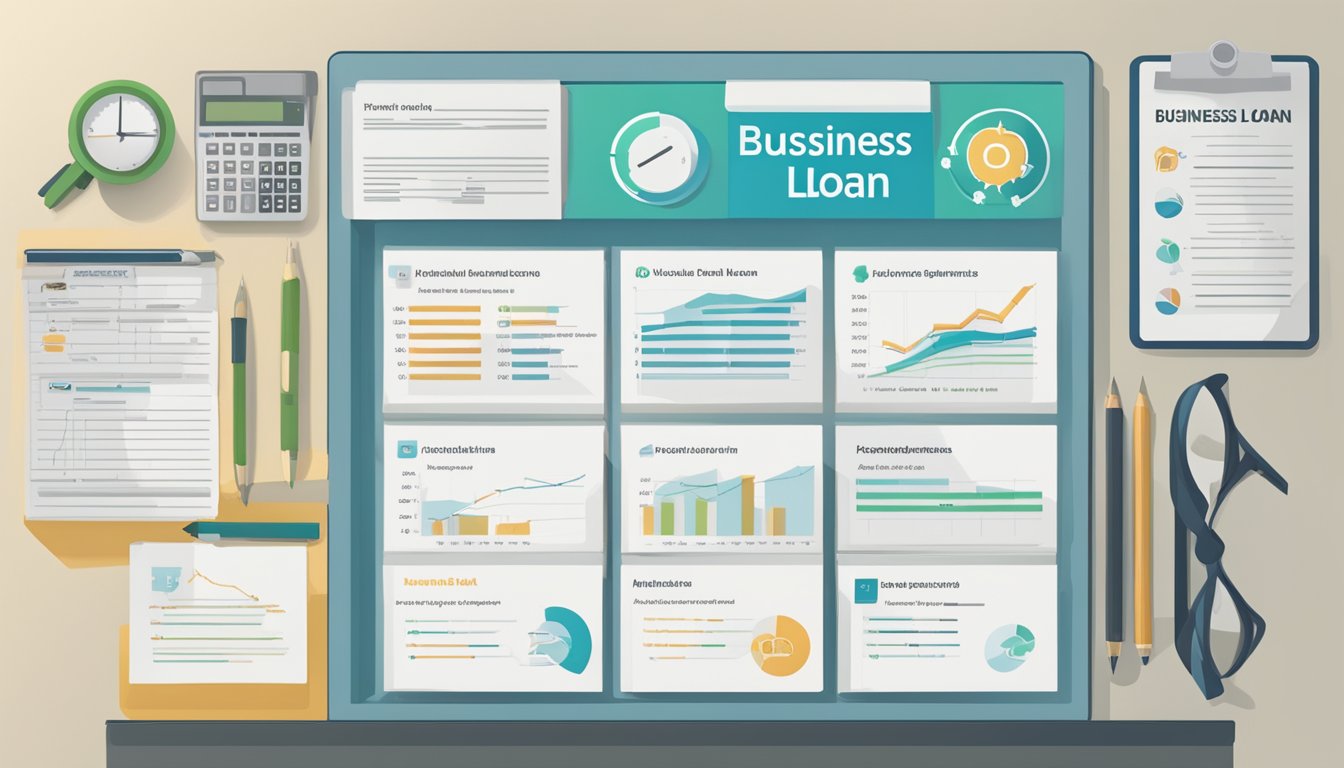If you’re looking to start or expand your business, you may need to consider taking out a business loan. Business loans can provide you with the necessary funds to grow your business, purchase equipment, or hire employees. However, with so many different types of business loans available, it can be difficult to know which one is right for you.

One way to determine which business loan is best for you is to compare different loan options. By comparing business loans, you can find the loan with the best interest rates, terms, and repayment options for your business needs. In this article, we’ll cover the basics of business loans, including how to understand them and apply for them. We’ll also answer some frequently asked questions about business loans, so you can make an informed decision when choosing a loan.
Overall, if you’re considering taking out a business loan, it’s important to do your research and compare different loan options. With the right loan, you can help your business grow and succeed.
Understanding Business Loans

If you’re a business owner, you may need a loan to finance your business operations, whether it’s for working capital, equipment, or expansion. However, choosing the right business loan can be overwhelming, given the variety of options available in the market. This section will help you understand the types of business loans, how to determine your business loan needs, and the eligibility and requirements for obtaining a business loan.
Types of Business Loans
There are different types of business loans available, each with its own features and requirements. Here are some of the common types of business loans:
- Term Loans: These are lump-sum loans that are repaid over a fixed period, usually with a fixed interest rate. They are suitable for long-term investments, such as purchasing equipment or real estate.
- Lines of Credit: These are flexible loans that allow you to borrow up to a certain limit, and you only pay interest on the amount you borrow. They are suitable for managing cash flow and short-term needs.
- Invoice Factoring: This is a financing option that allows you to sell your unpaid invoices to a third-party company at a discount. This can help you get cash quickly, but you will receive less than the full value of your invoices.
- Equipment Financing: This is a loan that is used to purchase equipment for your business. The equipment serves as collateral for the loan, and you can usually get a lower interest rate than with an unsecured loan.
Determining Your Business Loan Needs
Before you apply for a business loan, you need to determine your business loan needs. This includes the amount of funding you need, the purpose of the loan, and the repayment terms that work for your business.
To determine your loan amount, you need to consider your business revenue, working capital, and credit score. You also need to consider the purpose of the loan, whether it’s for short-term or long-term needs. This will help you decide on the best loan type and repayment terms for your business.
Eligibility and Requirements
To be eligible for a business loan, you need to meet certain requirements, such as having a good credit score, a stable cash flow, and collateral. The eligibility requirements vary depending on the lender and the loan type.
When applying for a business loan, you may need to provide documentation, such as bank statements, tax returns, and financial statements. Some lenders may also require a personal guarantee or a business plan.
It’s important to shop around and compare different lenders and loan products to find the best financing options for your business. Look for lenders that offer flexible repayment terms, competitive rates and fees, and funding that meets your business needs.
Applying for Business Loans

Getting a business loan can be a great way to take your business to the next level, but it can also be a daunting process. In this section, we’ll walk you through the steps of applying for a business loan, from selecting the right lender to what to do after you receive the loan.
Selecting the Right Lender
When it comes to selecting the right lender for your business loan, there are a few things to keep in mind. First, you’ll want to research the lender’s reputation and read reviews from other borrowers. This will give you a better idea of what to expect from the lender and can help you avoid any potential issues.
Next, consider the type of lender you want to work with. Online lenders can offer more flexible repayment terms and faster turnaround times, but they may not offer the same level of customer service as a traditional bank. If you need a guarantor, you may want to consider a bank or credit union that offers business lending.
The Application Process
Once you’ve selected a lender, it’s time to start the application process. Most lenders will require you to provide some basic information about your business, such as your business line of credit, loan offers, and bank statements. You may also need to provide a business plan and financial projections.
If you’re applying for a commercial loan, you may need to provide additional documentation, such as tax returns and financial statements. The application process can take anywhere from a few days to a few weeks, depending on the lender and the complexity of your application.
After You Receive the Loan
After you receive the loan, it’s important to use the funds wisely and make your payments on time. If you’re using the loan to fund a startup, make sure you have a solid plan in place to ensure that you can repay the loan on time. If you’re using the loan to expand your business, make sure you have a plan for how you will use the funds to generate additional revenue.
If you’re struggling to make your payments, contact your lender right away to discuss your options. Many lenders offer flexible repayment terms and may be able to work with you to find a solution.
Overall, applying for a business loan can be a great way to fund your business and take it to the next level. By selecting the right lender, understanding the application process, and using the funds wisely, you can set your business up for success.
Frequently Asked Questions

How can I secure a business loan for a fresh startup venture?
As a new business owner, securing a business loan can be a daunting task. However, there are several options available to you. You can consider applying for a government-backed SME loan, which is designed to help new businesses get off the ground. Alternatively, you can look into unsecured business loans, which do not require collateral. It’s important to have a solid business plan and financial projections in order to increase your chances of approval.
What are the most competitive interest rates for business loans currently available?
The interest rates for business loans can vary depending on the lender, loan amount, and loan term. Currently, the most competitive interest rates for business loans range from 4% to 10% per annum. It’s important to shop around and compare rates from different lenders to find the best deal.
Which financial institutions offer the top deals for SME business loans?
There are many financial institutions that offer SME business loans in the UK. Some of the top lenders include Barclays, HSBC, Lloyds Bank, and NatWest. It’s important to compare the terms and conditions of each loan to find the best deal for your business.
How do I use a business loan comparison calculator to save money?
A business loan comparison calculator can help you save money by allowing you to compare different loan options side by side. To use a loan comparison calculator, simply enter the loan amount, loan term, and interest rate for each loan you are considering. The calculator will then show you the total cost of each loan, allowing you to choose the most cost-effective option for your business.
What factors should I consider when choosing a business loan for a new company?
When choosing a business loan for a new company, it’s important to consider several factors. These include the interest rate, loan term, repayment schedule, and any fees or charges associated with the loan. You should also consider the lender’s reputation, customer service, and eligibility requirements.
What perks do banks offer to stand out as the best choice for a business loan?
Banks offer a range of perks to stand out as the best choice for a business loan. These may include lower interest rates, flexible repayment schedules, and personalised customer service. Some banks also offer additional services, such as business mentoring and networking opportunities, to help new businesses succeed. It’s important to research each lender’s offerings to find the best fit for your business.




